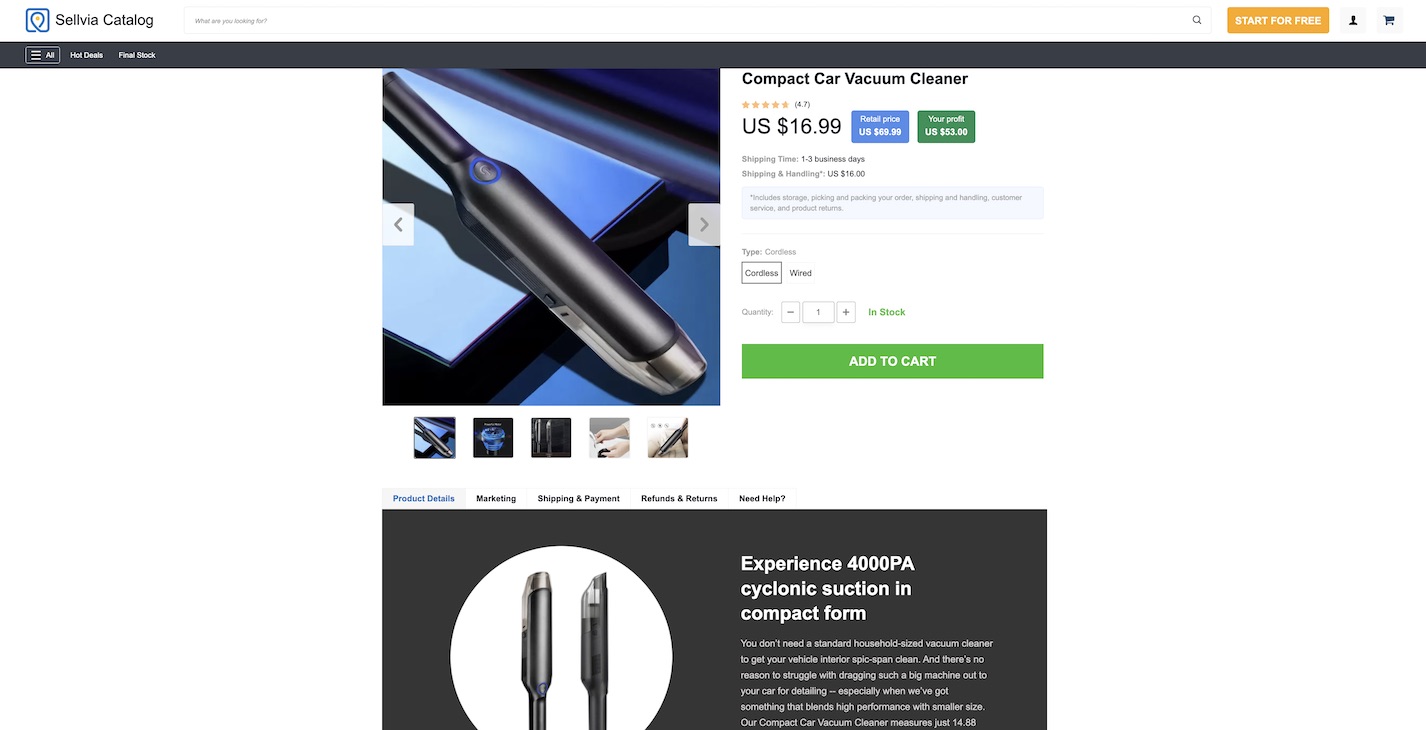What’s actually SEO for ecommerce, and why should you pay attention to it when you run your business? Search Engine Optimization (SEO) is the process of optimizing a website to improve its visibility in search engine results pages (SERPs). For ecommerce websites, SEO is crucial for driving targeted, hot traffic to the site and increasing sales. By following best practices for SEO, ecommerce businesses can ensure that their products and services are seen by the right people at the right time. In this guide, we will give you ecommerce SEO best practices covering the essential elements of SEO for ecommerce websites such as keyword research, on-page optimization, technical SEO, link building, and tracking and reporting. By the end of this guide, you will have a solid understanding of how to optimize your ecommerce website for search engines and improve your online visibility.
What’s SEO for ecommerce? Is it a must-have for your business?

Search engine optimization (SEO) is a crucial aspect of any ecommerce business as it helps to increase the visibility of your website and drive more traffic to it.
By optimizing your website for search engines, you are making it more likely that people will find your website when they are searching for products or services related to your business.
One of the main reasons why SEO is so important for ecommerce businesses is that it helps to increase organic traffic to your website.
Organic traffic is the type of traffic that comes from search engines, as opposed to paid traffic from advertising. Organic traffic is more valuable because it is more likely to convert into sales.
By improving your website’s SEO, you can increase the amount of organic traffic that your website receives, which can ultimately lead to more sales and revenue for your business.
Another important factor to consider is that SEO is a long-term strategy, it takes time and effort to see the results but it will pay off in the long run.
Unlike paid advertising, where you need to constantly pay to maintain your visibility, the benefits of SEO will continue even after you stop putting effort into it.
This means that once your website suits search engines standards, it will continue to generate traffic and sales for your business over time.
Keyword research

Keyword research is the process of identifying the keywords and phrases that your target audience is searching for.
By targeting the right keywords, you can ensure that your ecommerce website is visible to people who are looking for products and services like yours.
There are a variety of tools and techniques that you can use for keyword research, including Google Keyword Planner, SEMrush, and Ahrefs. These tools can help you identify the keywords that are relevant to your products and services, as well as their search volume, competition, and potential traffic.
When selecting keywords, it’s important to focus on both broad and specific terms. Broad terms, such as “shoes” or “clothing,” will attract a large audience, but the competition for these keywords is high.
Specific terms, such as “women’s running shoes” or “men’s suits,” will attract a smaller audience but have less competition. By targeting a mix of broad and specific keywords, you can attract a large audience while still being able to compete for traffic.
On-page optimization

On-page optimization refers to the elements of a website that can be optimized for search engines.
These elements include title tags, meta descriptions, header tags, and content optimization.
Title tags and meta descriptions are HTML tags that provide information about your website to search engines. Title tags are displayed as the clickable headline in SERPs, while meta descriptions provide a summary of the website’s content.
By including keywords in these tags, you can improve your website’s visibility in search results. You can use header tags (H1, H2, H3, etc.) to structure the content on your website, making it easier for search engines to understand the hierarchy of information. By using header tags appropriately, you can ensure that your website is perfect for both search engines and users.
Content optimization refers to the process of making sure that your website’s content is relevant, informative, and high-quality. By creating content that is valuable to your target audience, you can attract more traffic and improve your website’s visibility in search results.
Technical SEO

Technical SEO refers to the technical aspects of a website that can affect its visibility in search results.
This includes site structure, mobile optimization, and site speed.
Site structure refers to the way that your website is organized, including the use of URLs, categories, and subdirectories. By structuring your website in a logical and easy-to-use manner, you can make it easier for search engines to crawl and index your site.
Mobile optimization is crucial for ecommerce websites, as an increasing number of people are using their mobile devices to access the internet. By making sure that your website is perfect for mobile, you can ensure that your ecommerce site is accessible to a wider audience.
Site speed refers to the time it takes for a website to load. Fast-loading websites are preferred by both search engines and users, so it is important to optimize your site for speed. This can be done by reducing the size of images, minimizing the use of JavaScript and CSS, and using a content delivery network (CDN).
Link building

Link building is the process of acquiring backlinks to your ecommerce website.
Backlinks are important because they signal to search engines that other websites consider your content to be valuable and relevant. The more backlinks you have, the higher your website will rank in search results.
There are several tactics that you can use for link building, including guest blogging, broken link building, and directory submissions. Guest blogging involves writing and publishing articles on other websites, which can help you acquire backlinks to your ecommerce site.
Broken link building involves identifying broken links on other websites and offering to replace them with links to your own content. Directory submissions involve submitting your website to online directories, which can help increase your visibility and acquire backlinks.
Tracking and reporting

To measure the impact of your SEO efforts, it’s important to track your progress and report on your performance.
There are a variety of ecommerce SEO tools and metrics that you can use for this, including Google Analytics, SEMrush, and Ahrefs.
Business owners use Google Analytics to track organic traffic, conversions, and revenue. SEMrush and Ahrefs are perfect to track rankings, backlinks, and competitors.
By using these tools, you can get a clear understanding of how your ecommerce website is performing in search results and identify areas for improvement.
Now you know well how to get a long-term source of hot traffic for your website. Are you eager to set up SEO for your ecommerce website to make it work for you on a permanent basis, but you don’t want to mess around with that? Don’t worry, we are here to help you!
How to do SEO for ecommerce in a couple of clicks?
Sellvia offers comprehensive SEO packages that are perfect for ecommerce store owners who want to improve their search engine rankings, but don’t have the time or expertise to handle SEO themselves. Are you looking for an ecommerce SEO strategy that really works? SEO packages by Sellvia are exactly what you need!
With Sellvia, you can rest easy knowing that your store’s SEO is in the hands of experienced professionals who will work to optimize your website and drive more traffic to it.
One of the best things about Sellvia’s SEO packages is that they are tailored to the specific needs of ecommerce stores. Our team of experts understands the unique challenges that ecommerce store owners face when it comes to SEO and they know how to optimize your website to drive more sales.
Whether you’re looking to increase visibility for specific products or want to improve your overall search engine rankings, Sellvia can help. Sellvia’s SEO packages include a wide range of services, from keyword research and SEO articles to link building and ecommerce SEO audit.
We will also monitor your website’s performance and make recommendations for improvements. This ensures that your website is always up-to-date with the latest SEO best practices and your website will be ready to show the best possible results.
Summing it up, if you’re an ecommerce store owner and want to improve your search engine rankings but don’t have the time or expertise to handle SEO yourself, Sellvia’s SEO packages are the perfect solution.
Our team of experts will work to optimize your website and drive more traffic to it, which can ultimately lead to more sales and revenue for your business. With Sellvia, you can focus on running your business while we take care of your store’s SEO. Profit!
Final thoughts on SEO for ecommerce
Search Engine Optimization (SEO) is crucial for ecommerce websites looking to increase their online visibility and drive targeted traffic.
By following best SEO practices for ecommerce, namely keyword research, on-page optimization, technical SEO, link building, and tracking and reporting, ecommerce businesses can improve their search engine rankings and attract more customers. It’s important to remember that SEO is an ongoing process and requires consistent effort and monitoring.
Be up-to-date with the latest SEO trends and best practices, and you will be able to ensure that your website is always optimized for search engines, and you do your best to provide your website with as much hot traffic as possible and boost its performance. Once you’ve paid attention to SEO for your ecommerce website, it will work for you for the years to come. How to optimize your website for search engines with no effort? Get SEO packages by Sellvia to let us take care of that!











